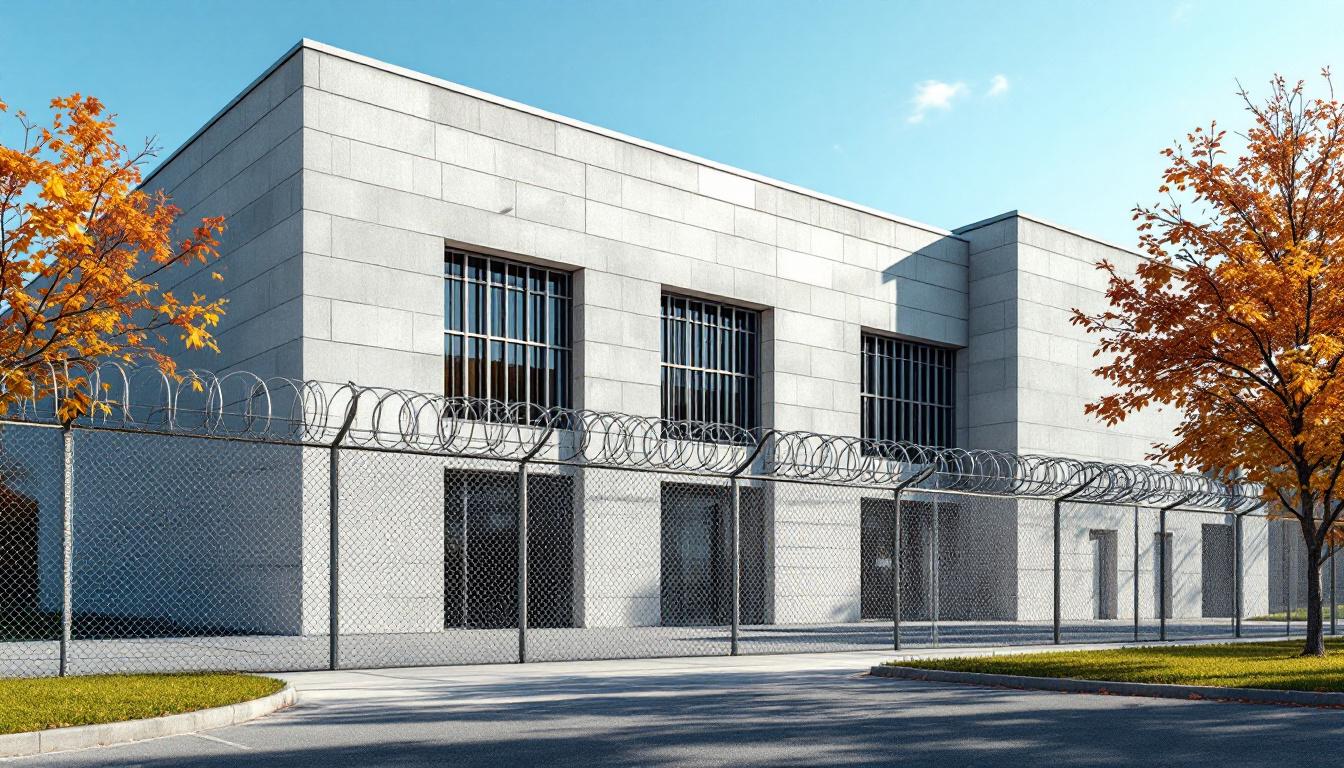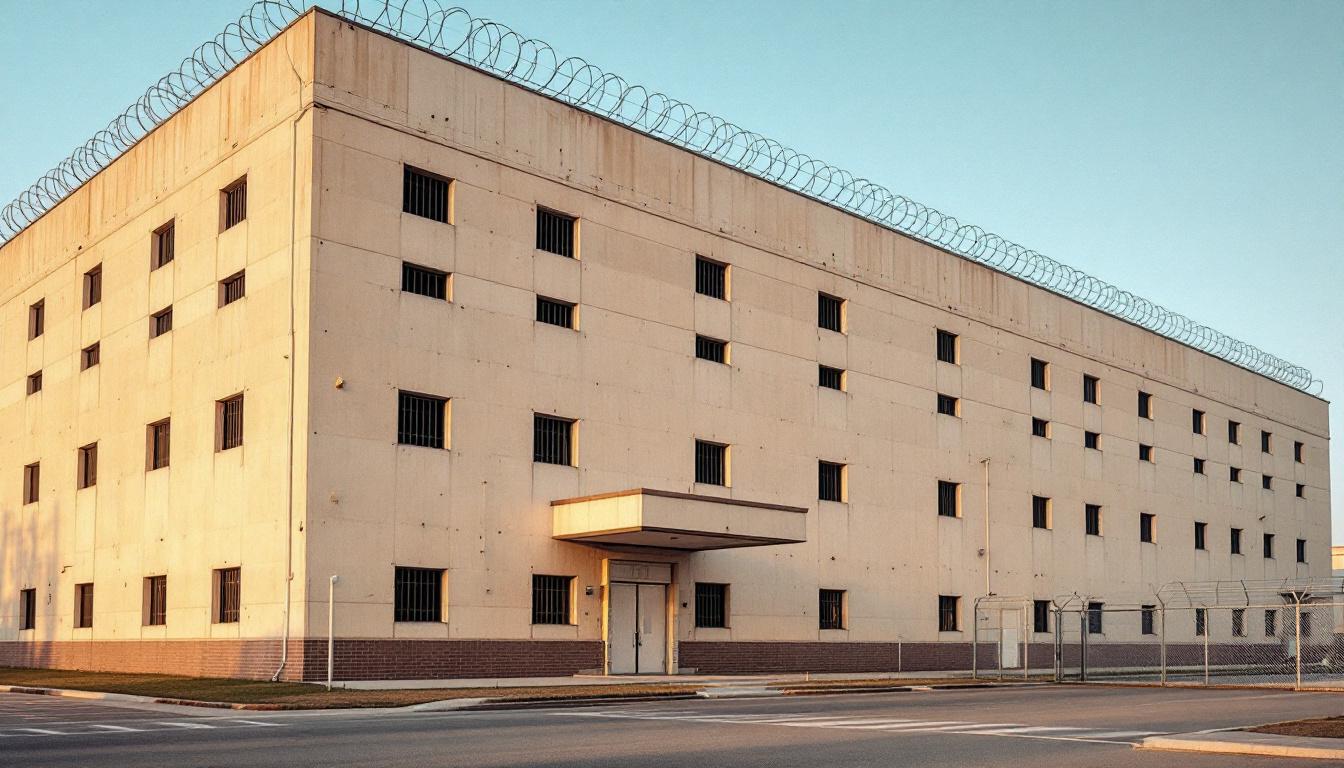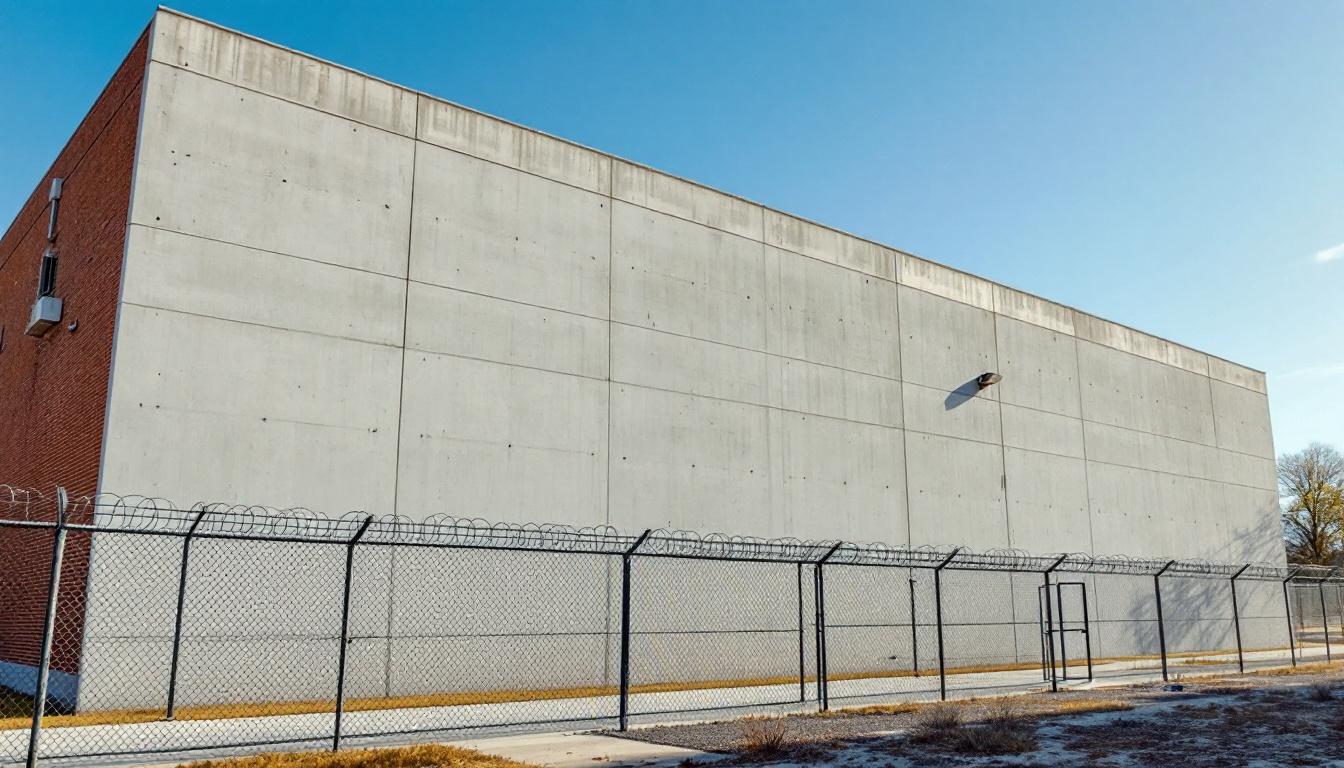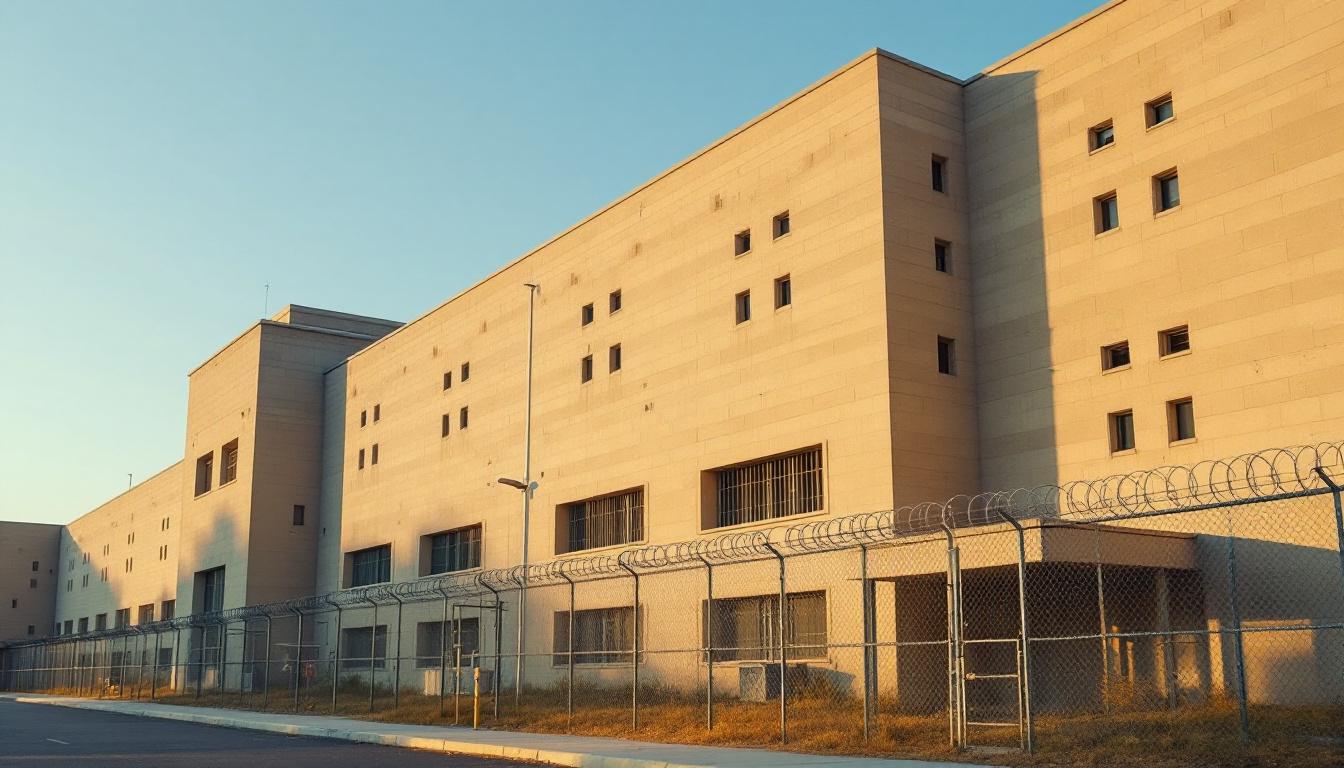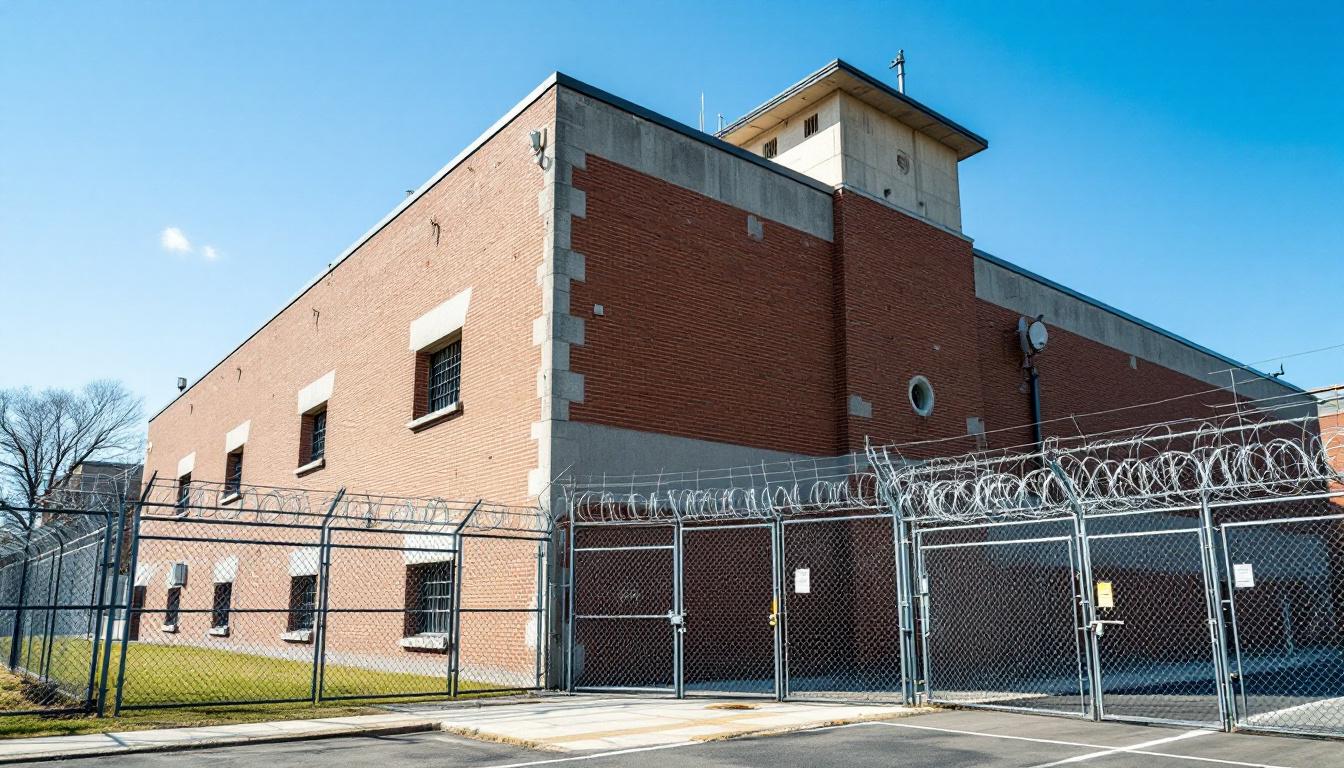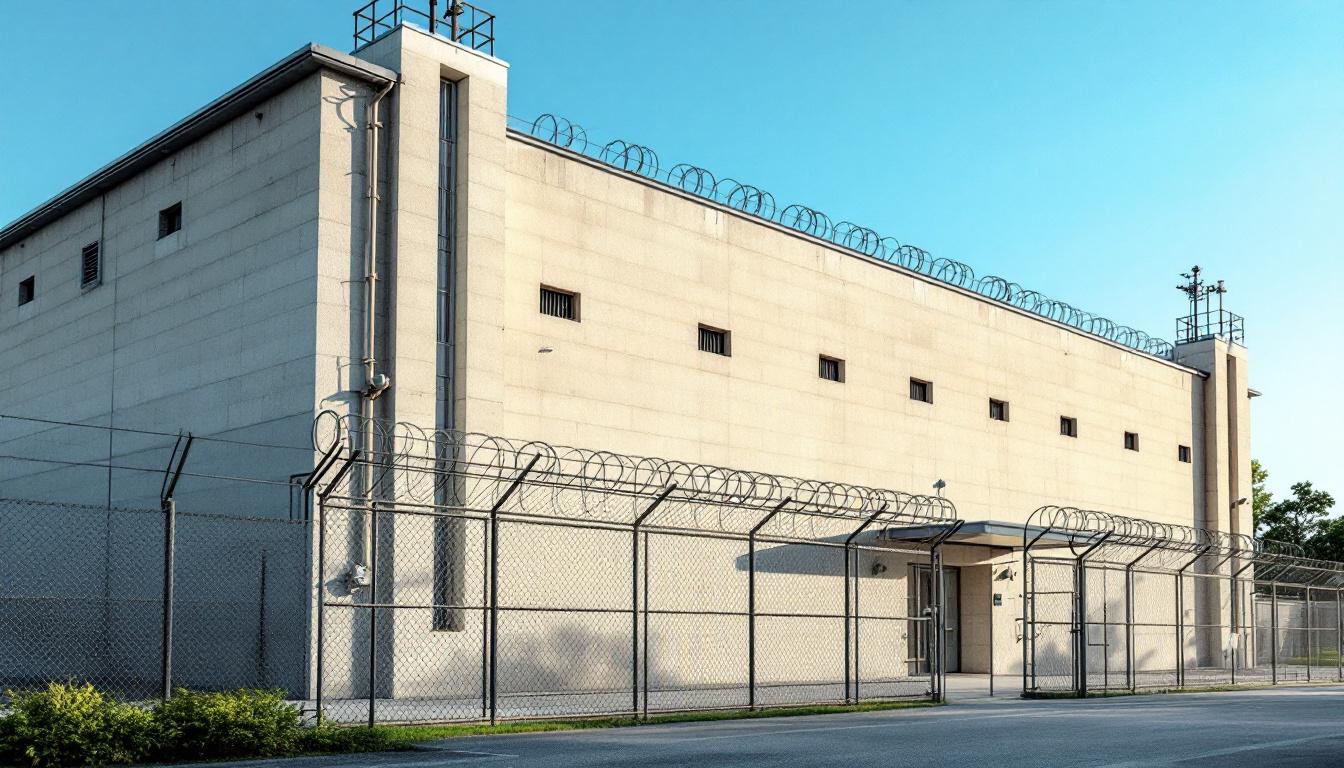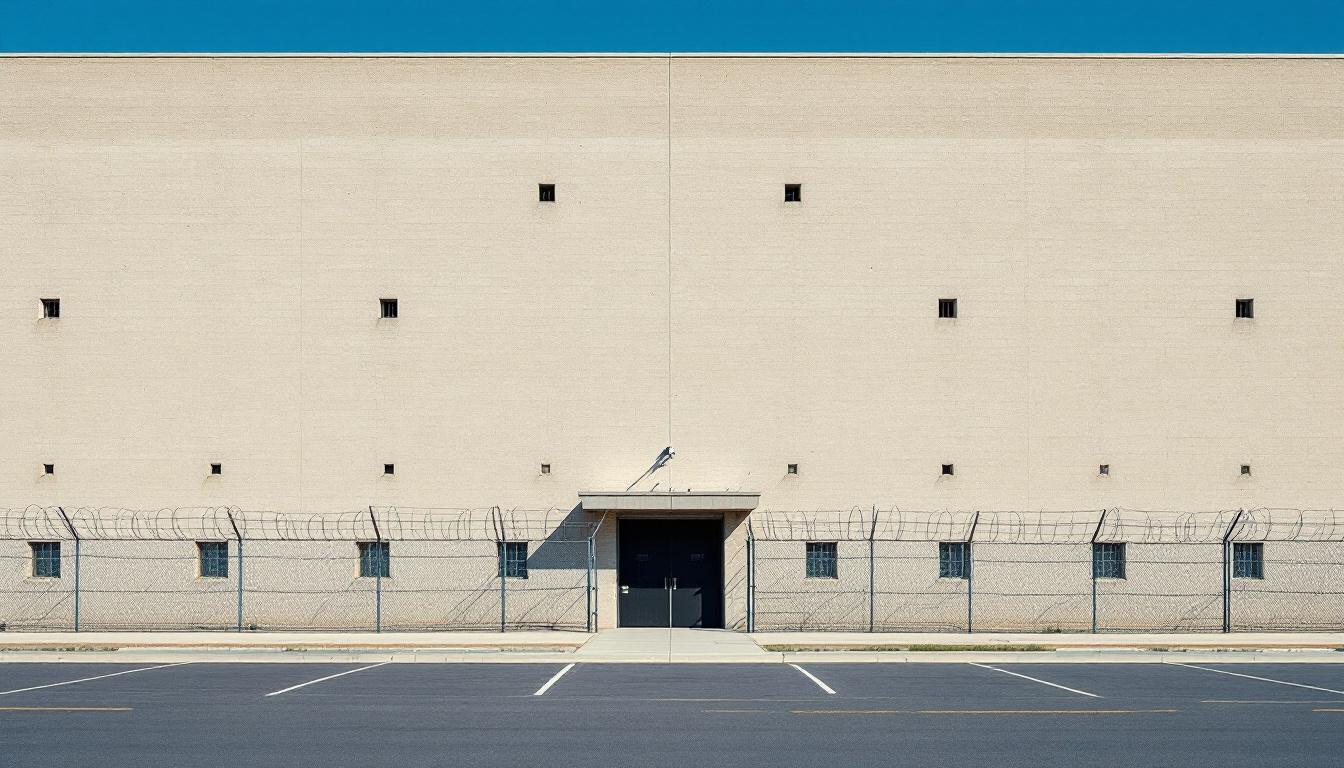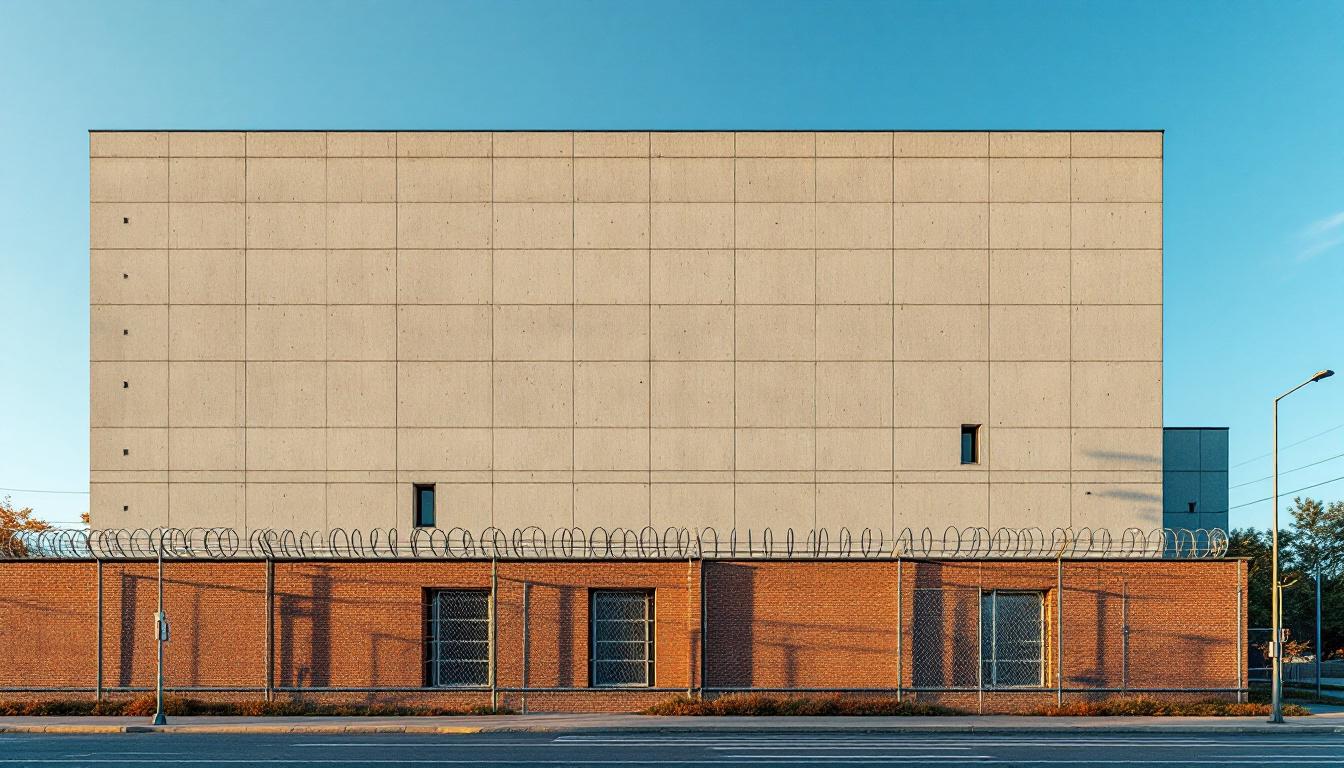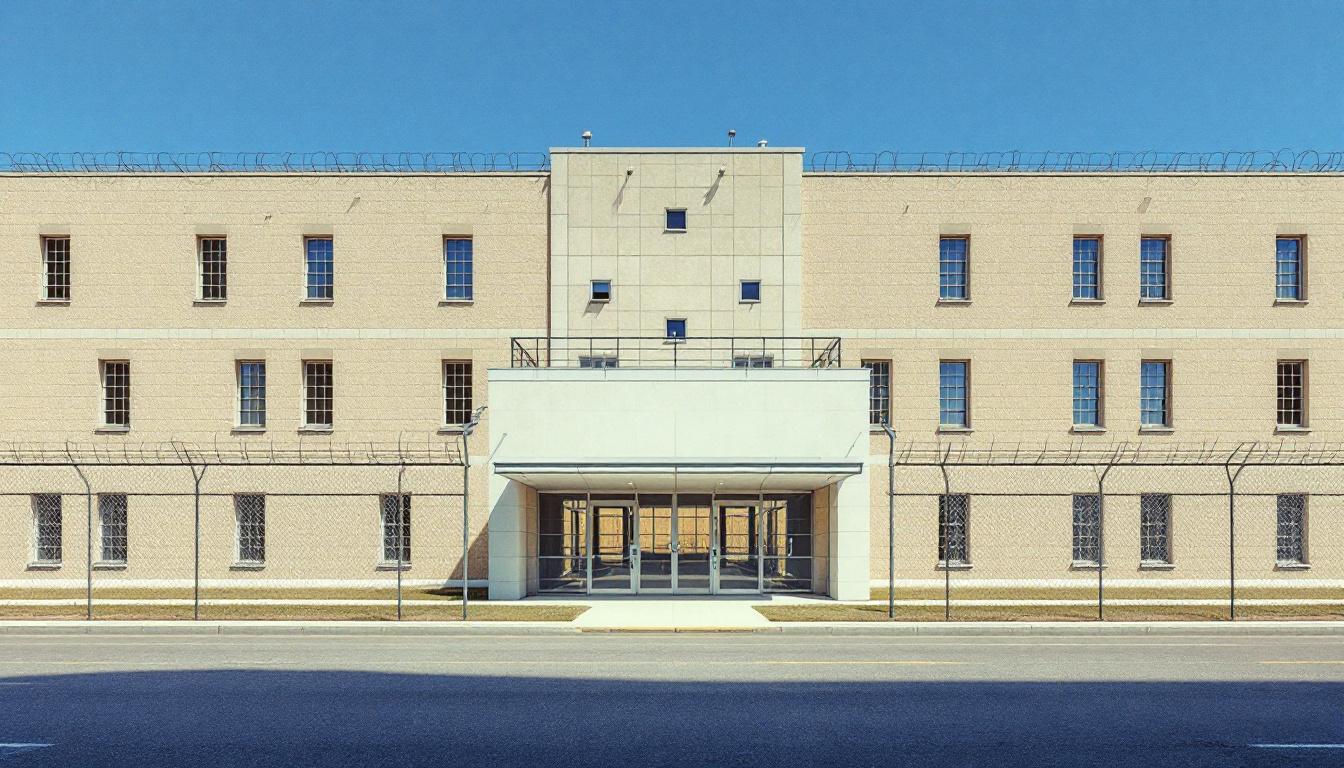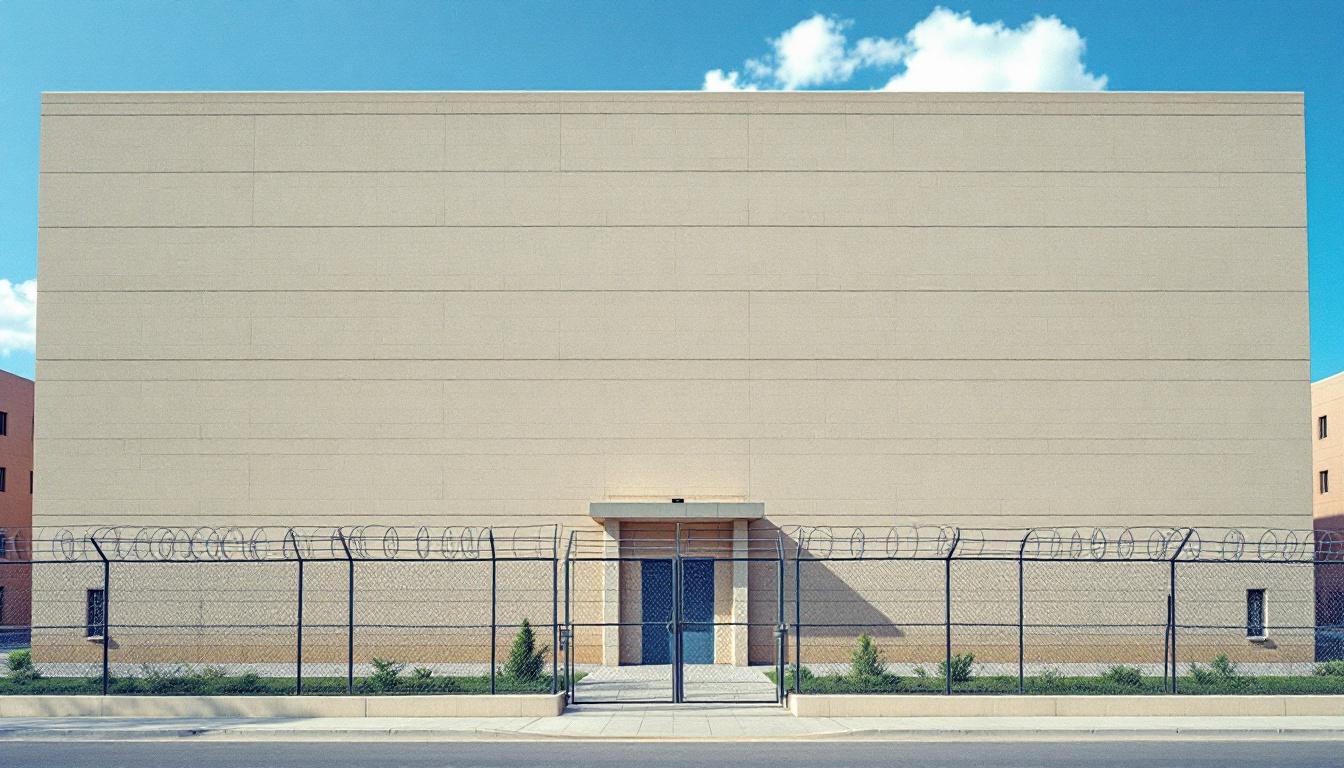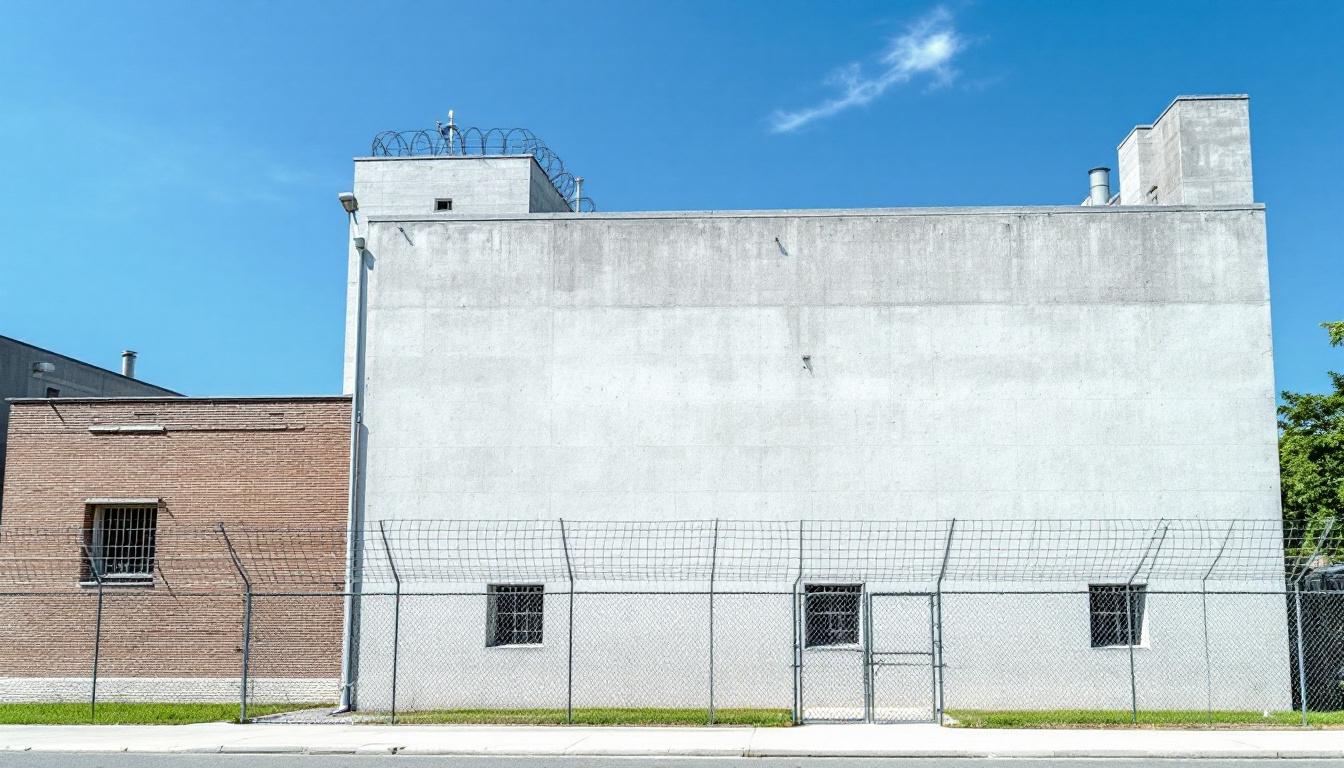
Quick Navigation
How to contact an inmate at Calhoun Correctional Institution
This comprehensive guide will walk you through how to connect with an inmate at Calhoun Correctional Institution. Follow the steps below to find an inmate and send letters and photos:
- Search for the inmate using our search tool below
- Create your account or log in to Penmate
- Write your message (up to 6,000 characters)
- Send instantly - inmates receive printed copies daily
Find an Inmate
Search for an inmate to start communicating today
Tip: You can search by first name, last name, or inmate ID number
To contact a person at Calhoun Correctional Institution start by searching for the person on the official facility website. Perform a search by following these steps:
- Step 1: Enter their first name and last name into the search form and click "Search"
- Step 2: Locate their inmate record
- Step 3: Write down their Inmate ID and any housing information provided
Important! Be sure to enter the person's full name. Nicknames should not be used.
How to Send Messages to Inmates

You can use your phone or computer to send emails, letters, and photos to an inmate. Messages are sent electronically to inmate tablets or kiosks at the facility. If you would like to send a message, start by searching for an inmate at Calhoun Correctional Institution.
Sending Photos and Postcards

A great way to send love and support to a loved one at Calhoun Correctional Institution is to send photos and postcards. It only takes a few minutes to send photos from your phone and it makes a huge difference. You can also mail postcards with words of support and inspiration, or design your own postcard for special moments like birthdays and holidays.
Important! Be sure not to send any explicit photos or they may not be approved by the facility. You can also use a photo printing app like Penmate to make sure your photos are printed at the correct size (4x6 or 3x5) and are mailed according to the rules and regulations of Calhoun Correctional Institution.
Frequently asked questions about Calhoun Correctional Institution
-
How long does it take to deliver a message?
If you're sending an email message your letter is usually delivered within 24-48 hours. For messages sent via mail you should expect delivery within 3-7 days. All messages will need be approved by Calhoun Correctional Institution.
-
How much does it cost to send a message to Calhoun Correctional Institution?
You can send a message free using your phone or mail a message via USPS for the price of a $0.60 stamp and envelope. You can also purchase credits or e-stamps from services starting at $1.99.
-
What services can I use to contact an inmate at Calhoun Correctional Institution?
Penmate
You can use Penmate to send letters and photos to an inmate from your phone. It's an easy way to stay in touch during your loved one's incarceration. Use the inmate locator to find an inmate's location and contact information, then you can send messages within a few minutes.
Securus messaging
Securus may be another option for communicating with an inmate at Calhoun Correctional Institution. You can create a friends and family account and purchase credits to send messages. All messages will be reviewed and must be approved by the facility.
JPay
Some county jails and state prisons may support sending messages with JPay. You must register an account with the system, find your loved one, and purchase stamps to send messages. For some locations you can also attach photos.
Smart Jail Mail
You may also check if Smart Jail Mail is available at Calhoun Correctional Institution. Smart Jail Mail is operated by Smart Communications and has contracted with some state and county jails. After purchasing credits, your messages and photos are sent to the facility, printed out, and then handed out to your loved one.
-
What is the mailing address of Calhoun Correctional Institution?
Mailing address:
Calhoun Correctional Institution
19562 SE Institution Dr
Blountstown, FL 32424
Phone: (850) 237-6500Business hours:
- Monday: Open 24 hours
- Tuesday: Open 24 hours
- Wednesday: Open 24 hours
- Thursday: Open 24 hours
- Friday: Open 24 hours
- Saturday: Open 24 hours
- Sunday: Open 24 hours
-
What are the visiting hours at Calhoun Correctional Institution?
Visiting hours at Calhoun Correctional Institution vary by housing unit and security level. Generally, visits are scheduled on weekends and holidays, with some facilities offering weekday visits. Contact the facility directly at (850) 237-6500 or check their website for the current visiting schedule. Visits typically last 30-60 minutes and must be scheduled in advance.
-
What items are prohibited when sending mail to Calhoun Correctional Institution?
Prohibited items typically include: cash, personal checks, stamps, stickers, glitter, glue, tape, staples, paperclips, polaroid photos, musical or blank greeting cards, hardcover books, magazines with staples, and any items containing metal or electronics. Only send letters on plain white paper with blue or black ink. Photos must be printed on regular photo paper (no Polaroids). Always check with Calhoun Correctional Institution for their specific mail policies.
-
How do I send money to an inmate at Calhoun Correctional Institution?
You can send money to an inmate at Calhoun Correctional Institution through several methods: 1) Online using JPay, Access Corrections, or the facility's approved vendor, 2) Money orders mailed directly to the facility with the inmate's name and ID number, 3) Kiosks located in the facility lobby, or 4) Over the phone using a credit or debit card. Fees vary by method, typically ranging from $2.95 to $11.95 per transaction.
-
Can I schedule a video visit with an inmate at Calhoun Correctional Institution?
Many facilities now offer video visitation as an alternative to in-person visits. At Calhoun Correctional Institution, video visits may be available through services like Penmate, Securus Video Connect, GTL, or ICSolutions. Video visits typically cost $10-20 for 20-30 minutes and must be scheduled in advance. You'll need a computer or smartphone with a camera and reliable internet connection. Contact the facility for their specific video visitation policies and approved vendors.
-
What identification do I need to visit an inmate at Calhoun Correctional Institution?
All visitors must present valid government-issued photo identification such as a driver's license, state ID, passport, or military ID. Minors must be accompanied by a parent or legal guardian who can provide the minor's birth certificate. Some facilities require visitors to be on the inmate's approved visitation list, which may require a background check. Contact Calhoun Correctional Institution for specific ID requirements and visitor approval procedures.
-
How can I find out an inmate's release date?
To find an inmate's release date at Calhoun Correctional Institution, you can: 1) Use the online inmate search tool if available, 2) Call the facility's records department, 3) Contact the inmate's case manager or counselor, or 4) Have the inmate provide this information during a call or visit. For privacy reasons, some facilities only release this information to immediate family members.
Facility Overview
Contact Information
Calhoun Correctional Institution19562 SE Institution Dr
Blountstown, FL 32424
Phone: (850) 237-6500
Official Website
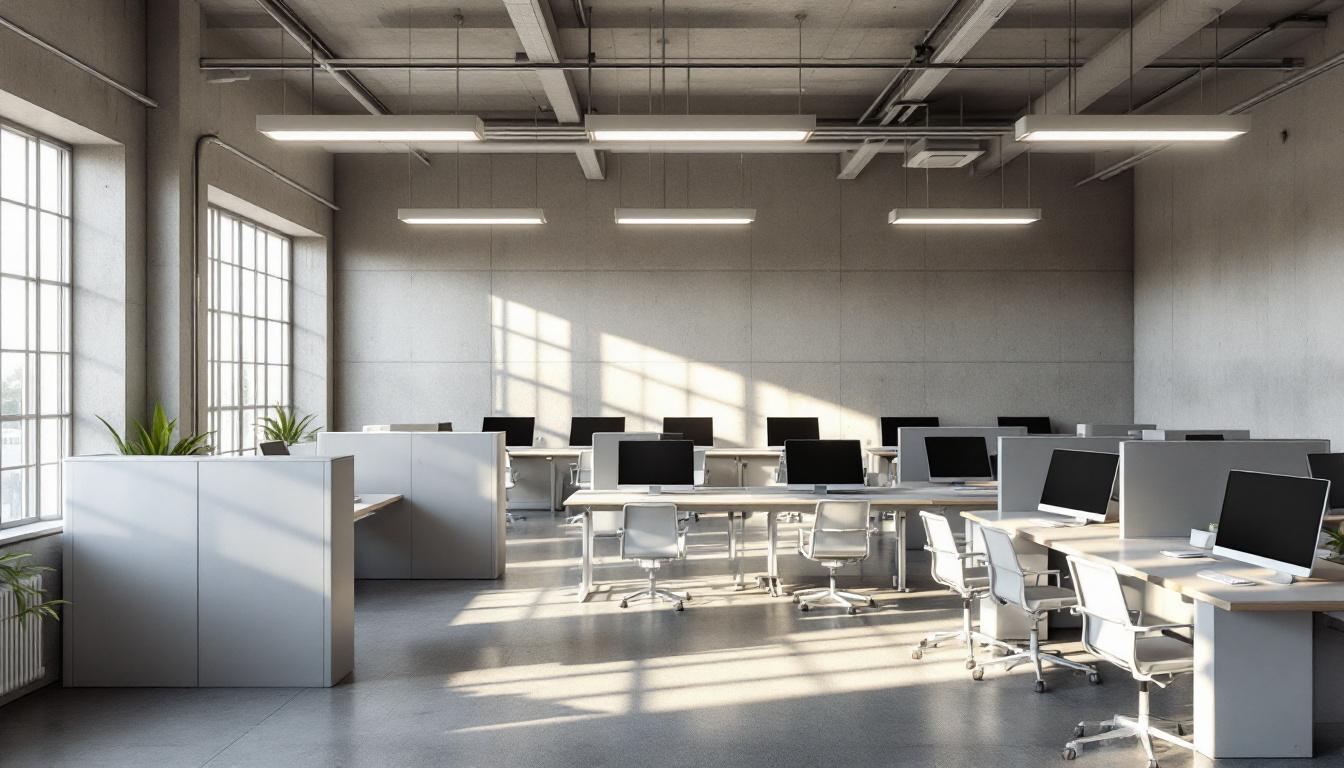
About Calhoun Correctional Institution
Within Tampa's urban landscape, Calhoun C.I., FL operates as a significant component of the state's correctional infrastructure, serving communities throughout the region with a focus on structured rehabilitation and comprehensive offender management. The facility's strategic position in Tampa allows it to maintain strong connections with local resources while providing essential correctional services that benefit both residents and the broader community.
This FL correctional facility typically emphasizes educational advancement and vocational skill development as cornerstone elements of its residents services approach. Programs may include literacy enhancement, job readiness training, and substance abuse counseling designed to address the underlying factors that often contribute to criminal behavior. The facility generally maintains structured daily routines that incorporate work assignments, educational opportunities, and therapeutic interventions, creating an environment where residents can develop the tools necessary for successful community reintegration.
Calhoun C.I., FL's approach to offender management often extends beyond basic custody to include comprehensive support systems that may involve mental health services, family communication programs, and pre-release planning assistance. The correctional facility typically collaborates with community organizations and service providers to ensure residents have access to resources that support long-term rehabilitation goals, reflecting Tampa's commitment to reducing recidivism through evidence-based practices and community-centered solutions.
Programs & Services
Educational initiatives form the foundation of rehabilitation efforts, focusing on addressing learning gaps that may have contributed to criminal behavior. Adult basic education services typically help residents develop fundamental literacy and numeracy skills needed for successful reintegration. Special education services often provide individualized support for residents with learning disabilities or developmental challenges, ensuring that all individuals can access meaningful educational opportunities regardless of their starting point.
Academic programming may deliver structured classroom instruction designed to help residents earn their high school equivalency credentials. These educational initiatives often include computer literacy training and basic life skills instruction that prepare individuals for employment opportunities upon release. In addition to this, vocational training components typically focus on developing marketable job skills in various trades and industries commonly found throughout Florida's economy.
Support services and therapeutic initiatives address the underlying issues that often contribute to criminal behavior patterns. Substance abuse treatment programs may deliver evidence-based counseling and group therapy sessions designed to help residents develop healthy coping mechanisms. Work release opportunities typically allow eligible residents to maintain employment in the community while completing their sentences, providing valuable work experience and income. Parenting classes and healthy relationships programming often focus on developing communication skills and conflict resolution techniques that benefit both family reunification efforts and future community interactions.
Daily Life & Visitation
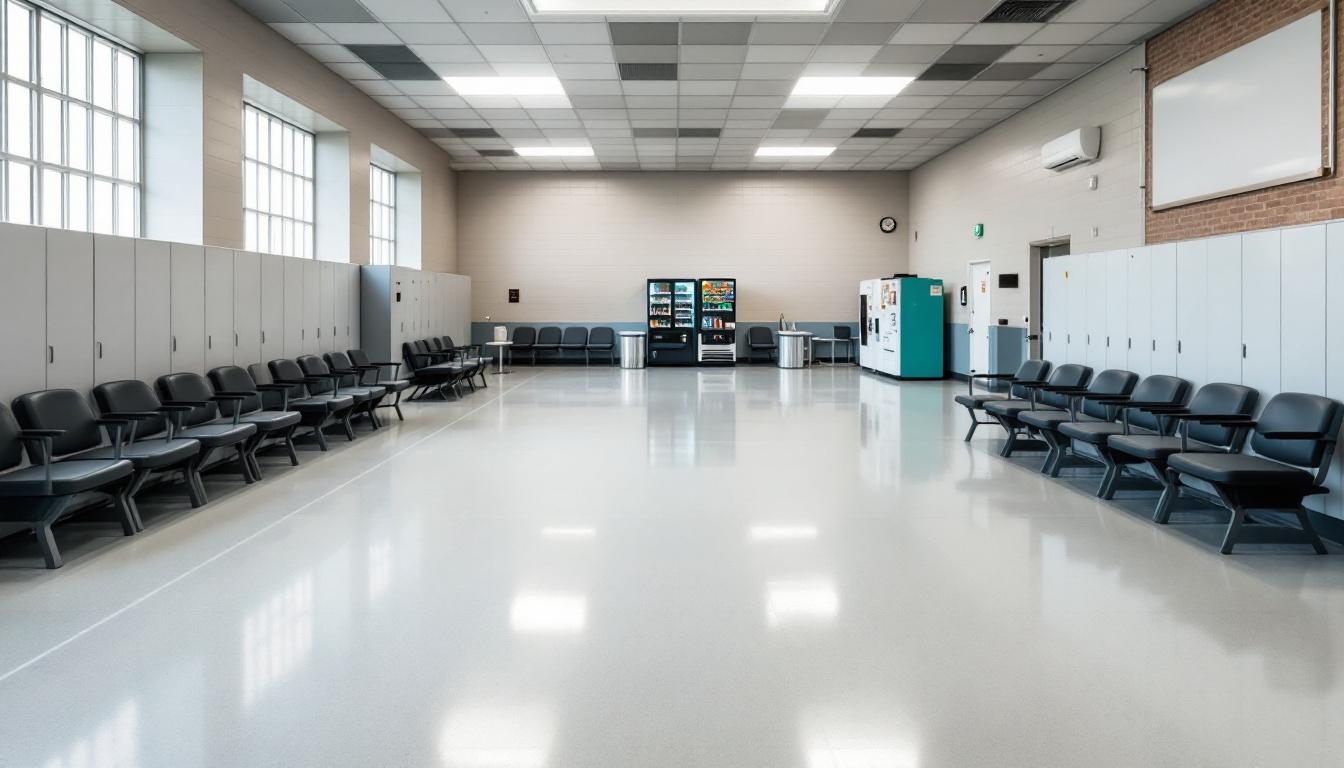
Structure now governs every aspect of daily life, with residents following regularly scheduled routines that begin before dawn and continue through evening hours. Wake-up typically occurs in the early morning hours, followed by facility counts, meal service, and work assignments that may include kitchen duties, maintenance tasks, or grounds keeping. Throughout the day, residents generally participate in structured programming that delivers educational opportunities, substance abuse treatment, or vocational training, with each activity carefully scheduled to maintain order and provide meaningful engagement.
Living accommodations typically consist of shared housing units where residents are assigned bunks or cells based on security classification and behavioral history. Personal property is generally limited to approved items that can be stored in designated areas, while residents may access commissary services to purchase additional necessities and approved food items. Meals are usually served in common dining areas at scheduled times, with residents following established procedures for movement between housing units and dining facilities.
In addition to this structured environment, residents often have access to recreational activities that may include outdoor exercise periods, library services, and organized sports when available. Visitation policies typically allow approved family members and friends to visit during designated hours, while residents may also maintain contact through monitored phone calls and correspondence. Despite this controlled setting, these communication opportunities help residents maintain important family connections and support systems that can be crucial for successful reintegration into the community.
Ready to Connect?
Start communicating with your loved one today
Search for an Inmate
